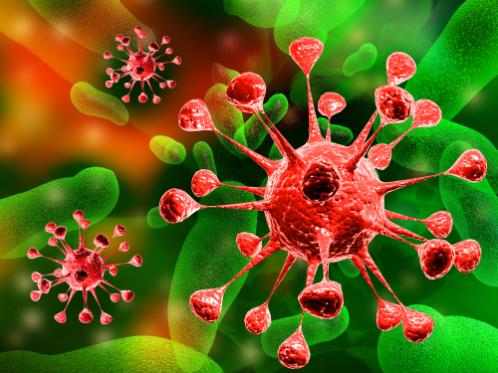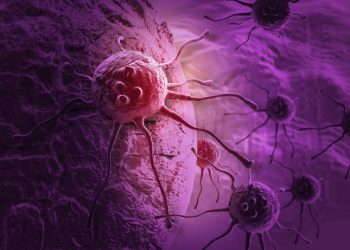Many bile duct cancers don’t cause any symptoms in their early stages. If you do experience symptoms, they may include yellowing of the skin and whites of the eyes (jaundice), clay-coloured stool or lighter urine, pain or bloating in your belly and fatigue.
If you have these symptoms, it’s important to see your GP, as they could be caused by other health conditions. You will need to have some tests to help make a diagnosis.
Jaundice
Jaundice is a common symptom of bile duct cancer. It occurs when a tumor blocks the flow of bile from the liver to the small intestine. This can cause a buildup of a substance called bilirubin in the blood, which gives the skin and whites of the eyes a yellow appearance. People may also have light-colored or greasy stools. These symptoms can also be caused by other conditions, such as gallstones. Therefore, doctors usually order several diagnostic tests to check for bile duct cancer.
The first step is to take a detailed medical history and perform a physical exam. Your doctor will examine the area around your liver and ask you questions about your family history. Your doctor will also order a blood test to measure levels of certain substances, including bilirubin and liver enzymes. The test can also look for a protein that some cancers produce to prevent them from being attacked by the immune system.
Other tests include imaging scans, such as an abdominal ultrasound, a CT scan or an MRI, and a special type of MRI called magnetic resonance cholangiopancreatography (MRCP). These tests use a combination of sound waves and magnets to obtain images of your liver and bile ducts. They can help your provider identify a tumor and determine whether it is causing jaundice.
A cholangiocarcinoma can grow for years before any signs or symptoms appear. In fact, it is rare for a bile duct cancer to be diagnosed in its early stages. This is because the bile ducts are located deep inside your body and are hard to see during a physical exam.
Your doctor will also want to know how far the cancer has spread, which is called staging. This information helps your provider plan the best treatment for you. Your provider will use a variety of tests, including imaging and a biopsy, to determine the stage of your bile duct cancer. Staging can help your provider decide whether you need surgery, chemotherapy or other treatments. It can also help your provider predict how well you might respond to treatment and your outlook (prognosis). Each person is different, so survival rates are based on averages and statistics.
Abdominal pain
Abdominal pain may be a symptom of bile duct cancer, especially if it lasts longer than usual or is accompanied by other signs. The pain may be concentrated on the right side of your abdomen or underneath your ribs, or it could move to other areas of your stomach and back. It might also feel sharp or burning. Your abdomen is home to many of your organs, including the liver and gallbladder. You also have a large intestine, which is found in the lower part of your abdomen. Abdominal pain can be caused by infections, conditions that affect your digestive tract or organs, and a wide range of other medical problems.
If you experience abdominal pain, talk to your doctor about it. It does not necessarily mean that you have bile duct cancer, but it is worth getting checked out. Your GP may feel your tummy or ask for a blood test. They can refer you to a specialist for further tests or scans if they think that the pain is due to a serious problem.
Your doctor will look at your bile ducts using imaging tests, such as an ultrasound, computerized tomography (CT) or magnetic resonance cholangiopancreatography (MRCP). These techniques can help them see any blockages in your bile ducts. They can also use these methods to check for a bile duct tumor. Your doctor will also take a sample of your bile duct tissue, with a needle or through surgery, to test for cancer cells. This is called staging. It helps doctors know how far the tumor has grown and whether it has spread.
A bile duct cancer may not cause any symptoms in its early stages, especially if it is small. But as the cancer grows, it can press against nearby organs or cause other health changes, such as jaundice.
While a bile duct cancer diagnosis can be distressing, the good news is that it’s treatable. Treatment will depend on how serious the cancer is and how far it has spread. Relieving symptoms is an important part of treatment and is called palliative care.
Weight loss
A loss of appetite or a lack of energy are common bile duct cancer symptoms. The cancer may be affecting your gallbladder, liver or pancreas, and this can make it difficult to digest food and absorb the nutrients you need. As a result, your body may start to break down fat and muscle stores for energy, leading to weight loss.
You may also experience pain in the abdomen. This pain is usually focused on the right side of the belly, underneath your ribs. It can be a sign of a bile duct tumor, but it can also be caused by gallstones or other less serious conditions. You may also develop itchy skin, which can happen when the bile backs up in your bloodstream because you cannot process it properly.
Your doctor will check your symptoms and ask about your family history of cancer. They will do a physical exam and feel for tender spots on your stomach. They will also order imaging tests to see the inside of your organs and look for signs of cholangiocarcinoma. These may include ultrasound, computerized tomography (CT) scans and magnetic resonance imaging (MRI), which can be performed using a technique called magnetic resonance cholangiopancreatography (MRCP).
If you have pain or other symptoms, your health care team will work with you to manage them as part of your treatment. This is called palliative care, and it helps you cope with your diagnosis and treatment. It may include a combination of medications, such as pain relievers, antidepressants and antibiotics, and supportive services, such as counseling and help with everyday activities.
Even after your treatment is over, it’s important to eat healthy and get enough sleep to keep you feeling well. Try to eat smaller meals more often and avoid foods that are high in fat, such as meat, butter and cheese. Instead, eat foods that are rich in protein and carbohydrates, such as whole grains, vegetables and fruits. If you have trouble getting enough calories or protein, talk to your doctor about taking enzymes before meals. This can help your body absorb the nutrients you eat, according to Cancer Research UK.
Fatigue
Fatigue is a common side effect of many diseases and conditions, including bile duct cancer. It can be caused by the underlying disease, or it may occur as a result of treatment. If you are experiencing fatigue, talk to your doctor to see if it is related to your bile duct cancer or another health issue.
Fatigue can also be a sign of liver damage. If you have bile duct cancer, it can block the flow of bile through your liver. This causes a buildup of bile salts and the yellow pigment bilirubin in your bloodstream, which gives you jaundice. It can also cause a fever. The resulting low appetite can lead to unexplained weight loss.
You may also experience pain in your stomach or abdomen. This pain is usually in the upper right part of your belly. It can be a symptom of gallstones, as well as other conditions that affect the bile ducts and liver.
Your doctor will check for a bile duct tumor with imaging tests, such as ultrasound, computed tomography (CT) scans and magnetic resonance imaging combined with cholangiopancreatography (MRCP). The procedure is called endoscopic retrograde cholangiopancreatography (ERCP). It involves inserting a thin tube through your mouth or throat to view your bile ducts.
You might need additional tests, such as a positron emission tomography (PET) scan and a test for the protein carbohydrate antigen 19-9. This protein is overproduced by bile duct cancer cells and can help your doctor find out if you have this type of cancer.
If you have bile duct cancer, you might need surgery to remove your bile duct or nearby tissue. Your doctor might also use chemotherapy or radiation to kill cancer cells and relieve symptoms. If the cancer has spread, you might need a liver transplant. At Moffitt Cancer Center, our multidisciplinary team of experts will work with you to find the best treatment for your condition. We offer advanced therapies with a compassionate approach.









